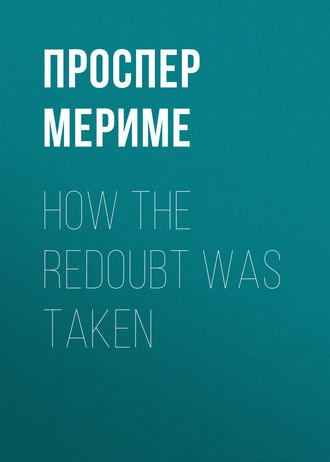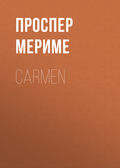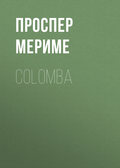
Проспер Мериме
How The Redoubt Was Taken
Just as the order to advance was given, the captain looked at me intently. I stroked my sprouting mustache with an air of unconcern; in truth, I was not frightened, and only dreaded lest I might be thought so. These passing bullets aided my heroic coolness, while my self-respect assured me that the danger was a real one, since I was veritably under fire. I was delighted at my self-possession, and already looked forward to the pleasure of describing in Parisian drawing-rooms the capture of the redoubt of Cheverino.
The colonel passed before our company. "Well," he said to me, "you are going to see warm work in your first action."
I gave a martial smile, and brushed my cuff, on which a bullet, which had struck the earth at thirty paces distant, had cast a little dust.
It appeared that the Russians had discovered that their bullets did no harm, for they replaced them by a fire of shells, which began to reach us in the hollows where we lay. One of these, in its explosion, knocked off my shako and killed a man beside me.
"I congratulate you," said the captain, as I picked up my shako. "You are safe now for the day."
I knew the military superstition which believes that the axiom "non bis in idem" is as applicable to the battlefield as to the courts of justice, I replaced my shako with a swagger.
"That's a rude way to make one raise one's hat," I said, as lightly as I could. And this wretched piece of wit was, in the circumstances, received as excellent.
"I compliment you," said the captain. "You will command a company to-night; for I shall not survive the day. Every time I have been wounded the officer below me has been touched by some spent ball; and," he added, in a lower tone, "all the names began with P."




